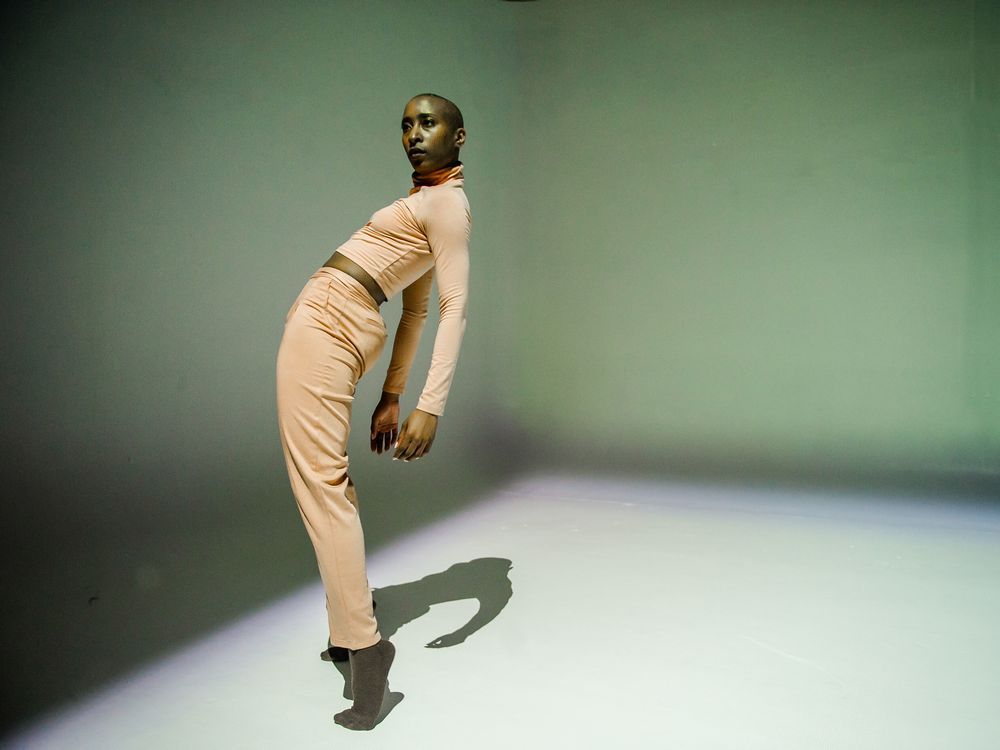Dancer's Black Like Me embodies a word and the controversies surrounding it

Credit to Author: Shawn Conner| Date: Wed, 13 Nov 2019 17:00:25 +0000
When: Nov. 20 at 7:30 p.m., Nov. 21 at 12:30 p.m.
Where: Chan Centre for the Performing Arts, 6265 Crescent Rd.
Tickets: $35/27/15 at chancentre.com
In the English language, no word is more fraught than the N-word. For Black Like Me, American contemporary dancer Jade Solomon Curtis confronts the slur and its social, cultural and personal impact through a multimedia performance that includes choreography, historic video clips and music. We talked to the Seattle-based dancer about the show, which makes its Canadian debut in Vancouver. (Note: Each show features two local community participants who engage in a mid-performance conversation activity onstage, and each performance is followed by a talkback.)
Q: You’ve performed Black Like Me in New York, L.A., Seattle and Seoul. Does reaction vary from place to place?
A: Yes. This is a work that changes more so, depending on who’s in the room and the age range. In the previous places we’ve done it, barring Seoul, there’s been a youth-only performance and it’s something I strongly stress for each of the venues. (In Vancouver, several local teens are expected to attend the Nov. 21 afternoon performance.) The youth-only performance is an open and honest platform we provide for youth to engage in the same show adults see. However, the youth react very differently because of their pop-cultural influences. They are often the ones who believe that this is not something that, as I believe, is detrimental not just to the black community but all communities.
Q: What do you hear from young people?
A: More often than not it is young black youth who defend the right to use the word, and those who are heavily influenced by pop culture and hip-hop. But these are also young people who often don’t have the knowledge and historical background and context around the word. Once they learn where the word came from and how it’s been perpetuated, their perspectives change.
Q:When is it OK to use the word? For instance, in the title of a dance performance? (The show’s full title is Black Like Me: An Exploration of the Word N*****.)
A: I titled the work the way that it is first to elicit reactions. What we tend to do is stay inward, so we’re thinking the word and not saying it. Using the word based on its definition is the proper use of it. So in that context, sure.
Q:It seems like a daunting task to present something so language-based in a dance context. How did you approach it?
A: All of my work stems from a very emotional place. Starting from an emotional place, creating movement makes more sense. I had personal experiences with the word in my adulthood that forced me to question my contribution to it, especially as it relates to hip-hop. This is a multi-disciplinary work so we use several different forms of media to assist with allowing different forms of what I call insertion points into the work and therefore into the conversation. Much of this has been outside of the visual elements that hip-hop presents with the word. It’s been a very intellectual conversation on paper. What dance does, and what I attempt to do, is embody the conversation.
Q:What is your ultimate goal with Black Like Me?
A: Ideally, to change people’s perspective around the word. What has transpired with the piece is a thought-provoking conversation that raises the level of consciousness around this subject matter pertaining to race and language, and its impact on global communities.
CLICK HERE to report a typo.
Is there more to this story? We’d like to hear from you about this or any other stories you think we should know about. Email vantips@postmedia.com.